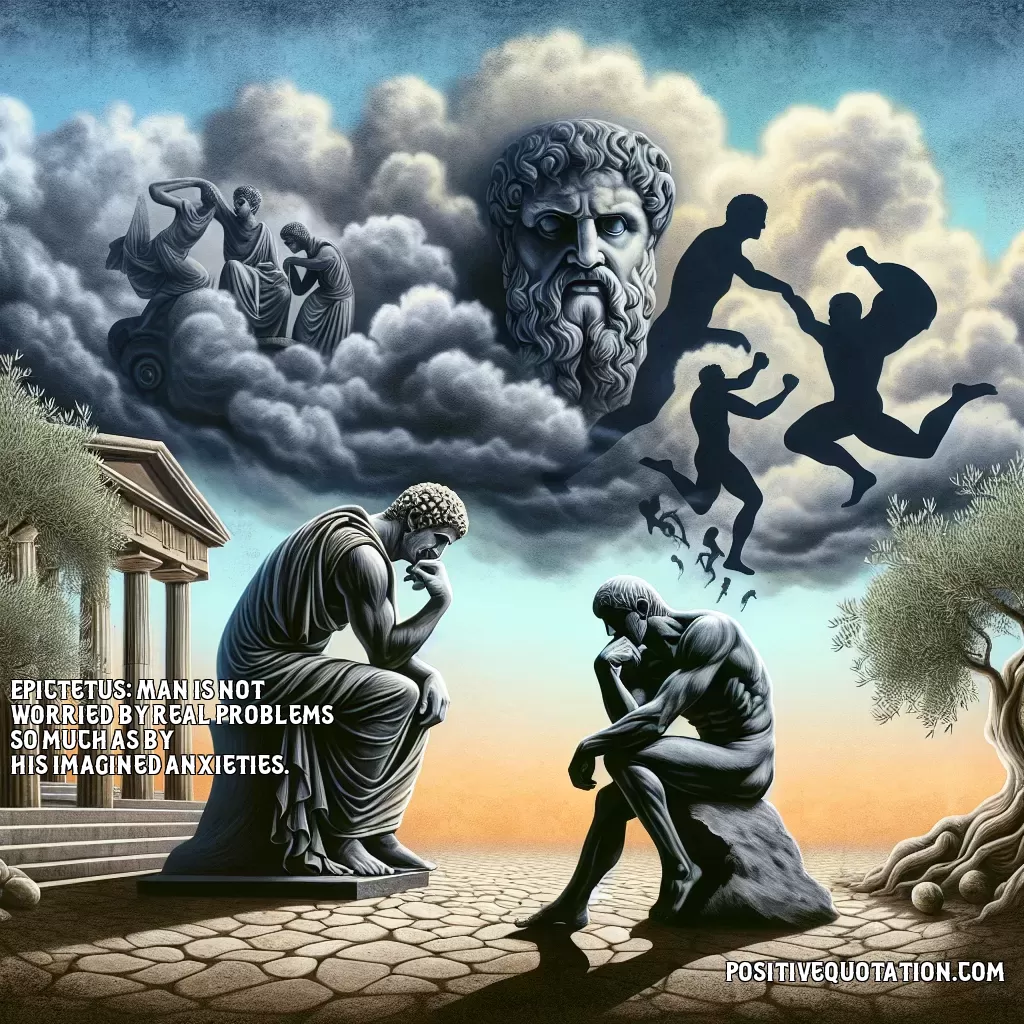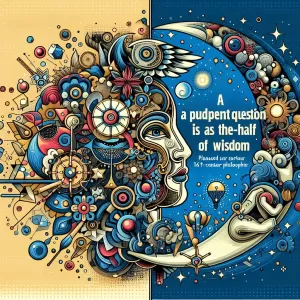
Epictetus: Man is not worried by real problems so much as by his imagined anxieties.
Author: Epictetus
👁️ 14 views

Epictetus: Man is not worried by real problems so much as by his imagined anxieties.
👁️ 14 views
Epictetus, a Stoic philosopher, observes that the concerns which most trouble human beings are not the actual problems they face, but the anxieties they invent in their minds. This quote suggests that a significant portion of human distress is self-inflicted, stemming from our mental and emotional responses rather than objective reality. In life, we indeed encounter genuine challenges and problems that require our attention and action. However, Epictetus points out that while these real problems are manageable with rational thought and effort, it’s our imagined fears and anxieties that often escalate them into seemingly insurmountable obstacles. These anxieties are frequently based on hypothetical scenarios, “what ifs”, and worst-case outcomes that may never materialize. Such imagined anxieties can have a paralyzing effect. They distract us from the present and cloud our judgment, making it difficult to address real issues effectively. This stems from an overuse of our imagination to project negative possibilities rather than focusing on the concrete steps we can take to improve our situation. In essence, Epictetus’s quote emphasizes the importance of distinguishing between what is real and what is imagined. By understanding this, individuals can strive to live more in the present and take a thoughtful, measured approach to genuine problems, reducing the unnecessary mental burden imposed by self-generated fears. This aligns well with the core Stoic principle of focusing on what is within our control and accepting what is not, thereby achieving a sense of calm and resilience.
Quote By: Epictetus

With the right approach, clear plans, and courage, even Mars can be conquered...
👁️ 43 views
Author:
Maye Musk
#inspirational quotes

Do not seek to follow in the footsteps of the wise. Seek what they sought. - ...
👁️ 26 views
Author:
Basho
#inspirational quotes

There is no relationship without arguments and resentment. Strong people figh...
👁️ 20 views
Author:
M. Scott Peck
#inspirational quotes

Tibetan Saying: The mind is a guest. Let it arrive. Let it leave.
👁️ 19 views
Author:
Unknown
#inspirational quotes

Gurdjieff: Be aware of yourself everywhere and always.
👁️ 18 views
Author:
G. I. Gurdjieff
#inspirational quotes

When troubles multiply and seem unsolvable, it means victory is near.
👁️ 17 views
Author:
Joyce Meyer
#inspirational quotes

A prudent question is one-half of wisdom. Francis Bacon
👁️ 17 views
Author:
Francis Bacon
#inspirational quotes

It is not how good you are, but how good you want to be. – Paul Arden
👁️ 17 views
Author:
Paul Arden
#inspirational quotes
Epictetus (c. 55–135 AD) was a prominent Stoic philosopher born a slave in Phrygia, who later gained his freedom and established a significant philosophical school in Rome and later in Nicopolis, Greece. His teachings, emphasizing the importance of personal responsibility and the distinction between what is within our control and what is not, were recorded by his student Arrian in works such as the "Discourses" and the "Enchiridion." Epictetus's philosophy profoundly influenced later thinkers and contributed to the development of Stoicism as a practical guide to ethical living.
Bio added on: 2025-02-15 18:06:51